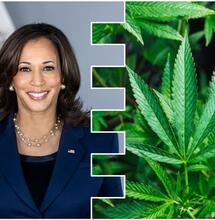Drug War's Racial Disparity Moves NAACP to Embrace Marijuana Legalization

"The flawed drug policies that so negatively impact our communities must be replaced..."
"The flawed drug policies that so negatively impact our communities must be replaced..."
The National Association for the Advancement of Colored People (NAACP), one of the nation's oldest civil rights groups, said at its Colorado-Montana-Wyoming state conference on Thursday that its members support Colorado's marijuana legalization ballot initiative. "We are committed to changing policies that result in a disproportionate number of African-Americans and other people of color being introduced into the criminal justice system," NAACP chapter president Rosemary Harris Lytle said, according to a media advisory. "With this endorsement, NAACP activists in Colorado take a significant step: calling for equity, justice and more effective policy - such as the proposal to regulate marijuana like alcohol in our state," she added. "The flawed drug policies that so negatively impact our communities must be replaced with policy that is not disproportionately punitive based on race but that helps us get to the root causes of drug use and abuse in America." The group said that marijuana prohibition has dramatically affected African-American community in Colorado, where just 4 percent of the general population is black but 20 percent of the prison population is black. And in Denver, where marijuana is supposedly decriminalized, a recent police review found that African-Americans account for 31 percent of marijuana arrests, despite making up just 11 percent of the general population. Colorado's Amendment 64, otherwise known as the Regulate Marijuana Like Alcohol Act, would allow adults to possess up to one ounce of dried and cured marijuana buds, or up to six marijuana plants, for personal use. A recent analysis by the Colorado Center for Law and Policy (PDF) found that the state stands to earn at least $60 million in added revenue and law enforcement savings the first year, and up to $100 million annually after five years. The left-leaning Public Policy Polling group said earlier this month (PDF) that 47 percent of recent Colorado survey respondents favor marijuana legalization, versus 38 percent who oppose it. "We are proud to have the support of the NAACP, which has been at the forefront of the movement to eliminate discrimination for more than a century," Betty Aldworth, a spokesperson for Campaign to Regulate Marijuana, said in prepared text. "Their voice will play a significant role in bringing about more fair and sensible marijuana policies in Colorado." SOURCE: www.rawstory.com AUTHOR: Stephen C. Webster
S
Soft Secrets



